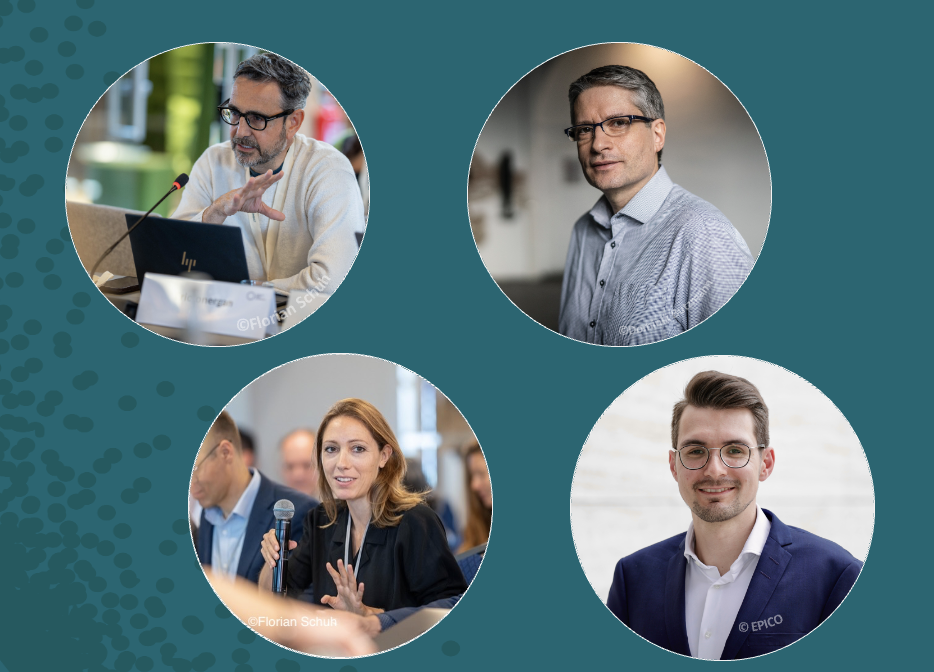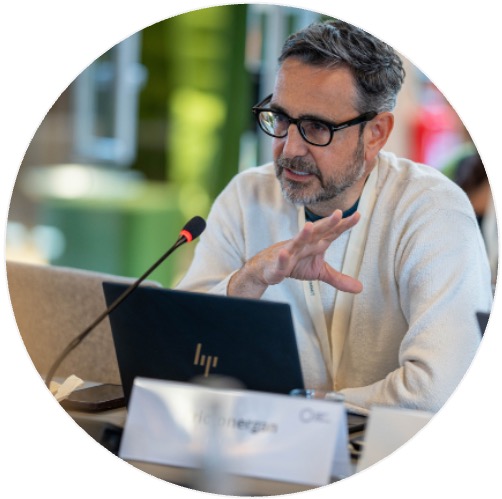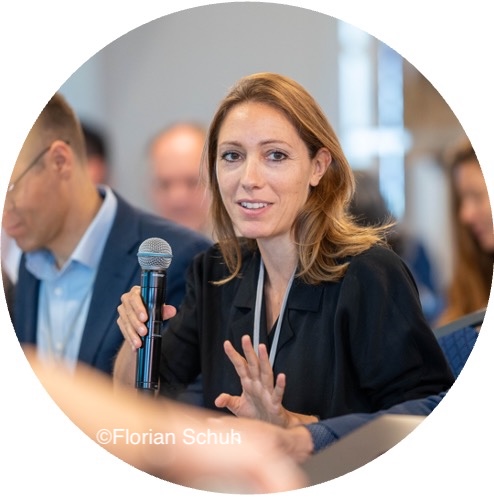Climate policy in crisis – will better timing help with CO2 pricing?
20/November/2025
1:30 PM CET
PLACE
Zoom
LANGUAGE
Englisch

Originally, carbon-intensive forms of driving and housing were supposed to become much more expensive from 2026 onwards. That was the plan for the next stage of emissions trading in the EU. It is also in line with traditional climate theory, which states that behavioral change must come about through cost pressure. The catch: in reality, governments repeatedly shy away from doing just that – as is the case now, with the EU postponing the introduction of ETS2 once again. At the same time, doubts are growing about the once-praised ideal of climate policy via the market.
The Forum has commissioned a study to outline what an alternative to this might look like. The principle: CO₂ pricing should only be introduced once the conditions are right and people have climate-friendly alternatives, such as affordable electric cars and sufficient charging stations. Before that, positive incentives are needed. Only then does it make sense to drive up the prices for harmful behavior, write Eric Lonergan, Michael Grubb and Isabella Wedl in the paper.
Could this also be a model for the EU — instead of just postponing the cost shock, as is currently the case? We will discuss this in our next New Economy Short Cut:
Climate policy in crisis – will better timing help with CO₂ pricing?
With Eric Lonergan, Calibrate Partners London
Isabella Wedl, Forum New Economy
Bernd Weber, Founder and Executive Director, EPICO
Sven Giegold, The Greens
on Thursday, 20 November 2025 at 13.30 CET – via
Zoom.

Sven Giegold
Sven Giegold is a politician (Alliance 90/The Greens) and economist who served as State Secretary at the German Federal Ministry for Economic Affairs and Climate Action from 2021 to 2024, responsible for economic policy fundamentals, European affairs, SMEs, and several reform and strategy projects. Previously, he spent twelve years as a Member of the European Parliament, where he served, among other roles, as spokesperson on economic and financial policy. He is a co-founder of Attac Germany. Giegold studied economics and social sciences in Germany, the United Kingdom, and France.

Bernd Weber
is founder and executive director of EPICO KlimaInnovation. Before, he was head of the Industry, Energy, and Environment Division at the German Economic Council, where he was responsible for the work of the Federal Expert Commissions for Energy and Industrial Policy. He was a member of the Climate-Neutral Electricity System Platform (PKNS) of the Federal Ministry of Economics and chairs the Energy and Environment Summits of the International Council of Energy and Environment (ICEE). Prior to that, he founded and headed the European Energy Lab 2030. His professional career also took him to the European Commission's Directorate-General for Trade and to Linde Gas. He worked at the University of Oxford and Sciences Po Paris, and has taught and continues to teach as a visiting professor of energy policy at the College of Europe, Sciences Po Paris, and the CIFE European Institute.

Eric Lonergan
is a macro hedge fund manager, economist, and writer. His most recent book is Supercharge Me, co-authored with Corinne Sawers, and a Financial Times Best New Climate Book (2022). He is also co-author of the international bestseller, Angrynomics, co-written with Mark Blyth, a Financial Times critics’ book of the year (2020). Prior to Angrynomics, he has written Money (2nd ed) published by Routledge. He has also written for Foreign Affairs, the Financial Times, and The Economist. He also advises governments and policymakers. he also write the Philosophy of Money blog, an early advocate of helicopter money and dual interest rates.

Isabella Wedl
is a scientific consultant with a focus on climate policy and sustainable food systems. She holds a doctorate in sustainability policy and worked at the Fraunhofer Think Tank and the sustainability consultancy SYSTEMIQ between 2014 and 2022. Since 2024, she has been supporting the Forum New Economy as Senior Advisor on Climate Policy.
